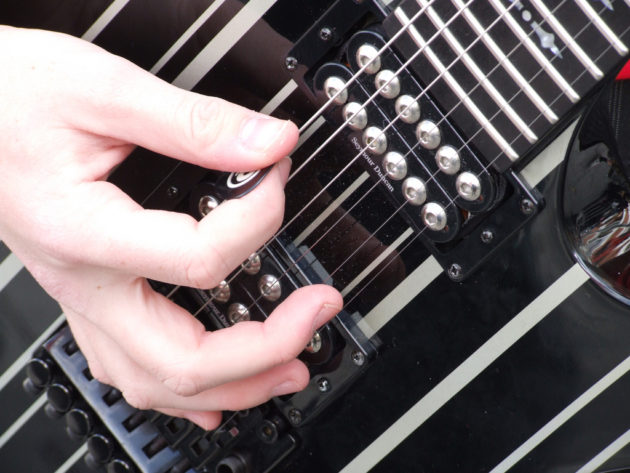One of the most expressive and artistic ways to play the guitar is to play a solo through improvisation. You may have heard of people like Scott Henderson, who are not just performers that people look up to, but who even teach improvisation as well! When someone learns to improvise, they can truly demonstrate their creativity, technique, skill, and precision, entertaining their audience and truly blowing the listeners’ minds.

Tips and Techniques for Guitar Improv
Guitar improvisation is not easy, however. It is a style in its own right, and it has numerous techniques that people have to become aware of. To learn it properly, you must be dedicated, have patience, spend a whole lot of time, and practice every opportunity you get. In fact, “practice, practice, practice” is the most important thing you can do, and one for which all you really need is a guitar and some time. Anyone who is a truly good guitar player, improvisation or not, has practiced again and again, and then a few more times.
Another useful tip is that you can learn to become a better improviser by playing a long to a CD of your favorite music. Whenever there is a bridge or a pause, then you can try to play a scale or a few chords along with the song. This also trains your ear and will help you to identify different keys.
Another way to learn is to focus firstly on the chords, and then using arpeggios whenever the song changes. If you want to become good at improv, you need to learn how to play an arpeggio first. In fact, if you haven’t learned about this yet, maybe you should stop learning to improvise and start by playing arpeggios until you get the hang of them. They are one of the most important tools in your overall improv kit.
Arpeggios help a lot, as do chord scales. What you do when you practice these, is playing the individual notes in a chord, rather than the chord as a whole. This means you won’t play a melody. However, you will learn where all the notes are, how the chords relate to each other, and what things sound like. Furthermore, you will develop muscle memory.
Last but not least, there are the guitar backing tracks. They are a hugely important improvisation tool, because it will sound as if you’re playing with a professional band and you hold the lead guitar. It is at this point that you can see how far you have come with your improvisation, and where you still need to improve. Plus, you will be able to learn more about timing. Overall, it will give you far greater enjoyment in everything that you do.
If you are serious about playing music, and the guitar in particular, and you have some basic skills and understand music theory, then you may be ready to start playing improv as well. But remember: practice, practice, practice!
